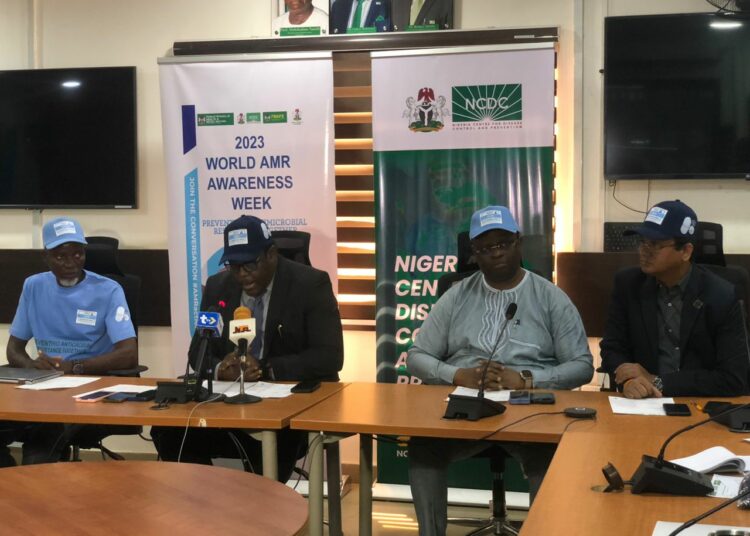In commemoration of the World Antimicrobial Awareness Week (WAAW), which is marked from November 18 to 24 every year, the National Antimicrobial Resistance Technical Working Group (AMR-TWG) has joined the global community to raise awareness about the dangers of misuse or overuse of antimicrobials in Nigeria.
Speaking in Abuja on Monday at the national flag-off event of the 2023 WAAW, the Director General of Nigeria Centre for Disease Control and Prevention (NCDC), Dr Ifedayo Adetifa, described antimicrobial resistance as a silent pandemic.
The WAAW 2023 celebration themed ‘Preventing Antimicrobial Resistance (AMR) Together’ was a call for all sectors to join forces and encourage the prudent use of antimicrobials and preventive measures.
“Every year, antimicrobial resistance (AMR) directly causes 1.27 million deaths and is associated with an additional 3.7 million deaths. Low- and middle-income countries (LMICs) including Nigeria bear the brunt of this burden, accounting for nearly 90 per cent of the direct death toll. Sadly, over 99.5 per cent of AMR–related deaths are among children under five. Recent studies show that more people die directly from AMR than from HIV/AIDS, malaria, or any one form of cancer other than lung cancer. In Africa, the burden of death attributed to AMR was highest in western Africa, at 27.3 deaths per 100,000 making it a super region for death due to drug-resistant pathogens.
“According to the World Health Organization (WHO), there are 15 priority antibiotic-resistant pathogens causing the greatest threat to human and animal health and 4 of them have been detected in Nigeria.
“The impact of AMR on the economy, health systems and the attainment of the Sustainable Development Goals (SDGs) is enormous. Up to US$100 trillion of global gross domestic product could be lost due to AMR by 2050, and the LMICs would be most negatively impacted. Antimicrobial agents are essential for food security and the global consumption of antimicrobials is projected to rise by 70% by 2030 and will affect sustainable food production systems if nothing is done.
“Since 2017, Nigeria has made strides in its response to AMR. Led by NCDC in collaboration with the tripartite sectors, there is now an AMR surveillance network, antimicrobial stewardship, and awareness programmes across the country creating awareness of AMR among healthcare professionals, farmers, and the public,” Dr Adetifa stated.
He added that “Fulfilling its commitment as agreed to at the Third Global High-level Ministerial Conference on AMR in Muscat, Oman, Nigeria is currently finalising its second National Action Plan for AMR (NAP 2.0) in collaboration with all relevant stakeholders to determine required finances, applicable milestones, and national targets, including the Sustainable Development Goal indicators on AMR in the human health sector, and adopting a One Health approach.”
The NCDC as well as other agencies and partners like the Ministry of Agriculture and Food Security, Federal Ministry of Environment, and other one-health stakeholders will be conducting media awareness campaigns, sensitisation activities in health facilities across seven states, and awareness campaigns among school children and others.
This year, BioMérieux, a global leader in the field of in vitro diagnostics, is partnering with NCDC to roll out AMR awareness campaign across the country.
Speaking to LEADERSHIP about the 2023 WAAR, a representative from one of WAAW support partners Badaki Iyanu, said: “It is an avenue to further reinforce our message on supporting antimicrobial susceptibility testing across health institutions in Nigeria.”
Dr Adetifa continued to urge Nigerians to handle antimicrobials with care by seeking professional consultation to conduct laboratory tests to guide the use of antibiotics and other antimicrobial agents, e.g., antimalarials for humans, animals, amongst other cautionary practices.
We’ve got the edge. Get real-time reports, breaking scoops, and exclusive angles delivered straight to your phone. Don’t settle for stale news. Join LEADERSHIP NEWS on WhatsApp for 24/7 updates →
Join Our WhatsApp Channel










